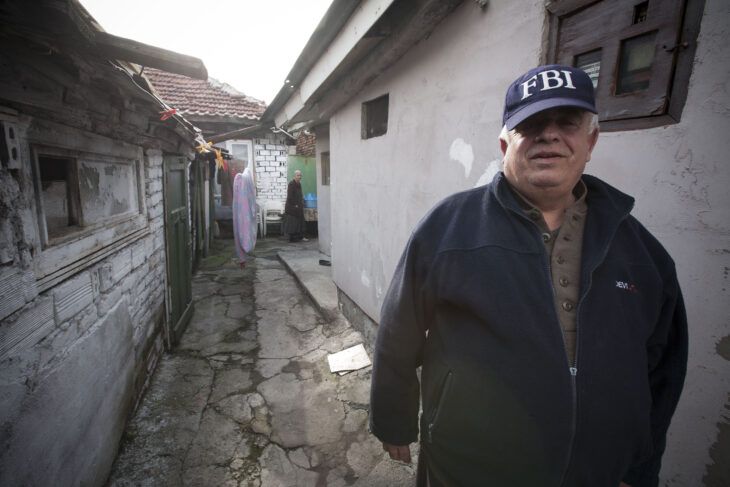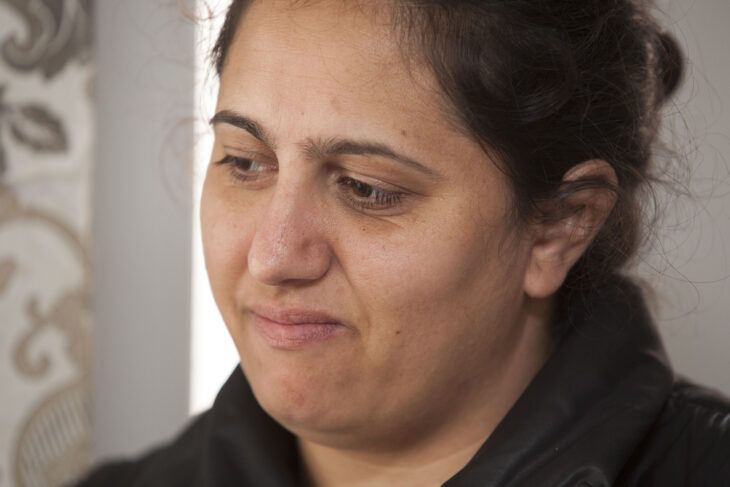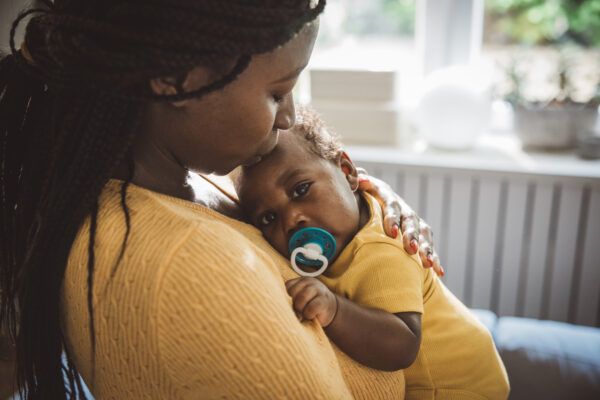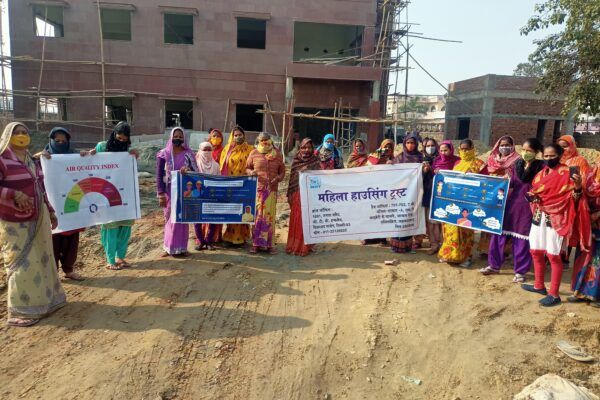Sofia is one of the 15 most polluted cities in the world during the winter months. Inside Sofia, the Fakulteta neighbourhood is on the outskirts of the city and experiences disproportionately high pollution levels. It is home to nearly 40,000 Roma residents and is Sofia’s largest informal settlement.
Roma people in Bulgaria struggle with higher unemployment rates, discrimination, marginalisation and barriers to accessing social and health services. The complexity and scale of most of these issues requires cross-sectoral collaboration between institutions, stakeholders and communities to be addressed.
Poor air quality = inequality
Many residents live in self-constructed houses and experience extreme poverty. It is a high-density neighbourhood with scarce access to public services, like water, sewage and regular waste management.
In the winter, the scent of chimney smoke saturates the air and does not clear for months. In the summer, the intrusive smell of burning merges with the stench of rotten waste, while kids step and play in flowing sewage on the streets.
29-year-old local mother
Residents express little hope that the situation will change, but they are open to talking about their challenges and survival strategies.
This spring, 81 residents took part in field research by Trust for Social Achievement to discuss the issue of air pollution. Participants were selected from a variety of socio-economic, age and housing backgrounds.
Survey participants shared that they are largely aware of the dangers of polluted air. For example, many shared that they have family members, often little children, who suffer from pollution-related health issues and respiratory problems that have become chronic.
Participants were also familiar with the sources of air pollution. Residents reported using wood, coal and solid waste to heat their homes in winter, despite believing that usage of these heating sources had decreased over the past 5-6 years. More than 65% shared that they have switched to electricity, pellets, or a combination of electricity, pellets, and gas.
People appreciate that air conditioners are easy to use and keep their houses cleaner. A young mother shares in one of the focus groups that the air conditioners are safer for younger kids. “There is no need to paint the house every year now, and in the past, when we were using ‘dirty’ coal, the inside of our home was all black,” says a woman in one of the focus groups. Another participant describes the dirt from burning coal and other items: “The babies, the diapers are in soot. Everything smells of smoke.”
But serious challenges persist. Self-constructed houses often prove energy inefficient, which explains the high electricity bills that families have to pay in the winter – some ranging from 500-800 BGN per month, which amount to the minimum monthly wage in the country of 780 BGN in 2023.
The households that have not switched to cleaner heating sources, for example the 22% that use wood/coal for heating, tend to be elderly people. And the 10% of participants that burn solid waste often come from the neighbourhood’s most marginalised families, living in shacks, often with no running water and unstable income. Some of these people lack personal documents and face barriers to all social and health services

Intersectional challenges to exclusion
Social assistance exists to help families heat their homes, but less than 10% of the field research participants were able to receive this type of assistance. Residents pointed toward a range of obstacles, including the informality of their houses, a lack of information and complicated bureaucratic procedures.
Solar panels are the best option. They are too expensive though and we cannot pay at once. But probably the investment pays off throughout the years. If I could, I’d cover the whole house. If there is a project from the municipality, I’d put the efforts to apply. We’ve seen such houses in the rich neighborhoods, but here in Fakulteta, there is just one house on the Vazkresenie blvd.
32 year-old mother of two kids, from the neighborhood

Respondents share that they are interested in prospective consultations with experts and the municipality, and they might be interested in applying for support to install solar panels. Nevertheless, a 24-year-old woman, mother of four children, indicates some reasonable challenges for solar panel funding: “It will be difficult for households to apply for EU funding because many of the houses and buildings don’t have official permission for use, the Record of Acceptance, and cannot meet the administrative requirements to apply. Maybe the procedure must be adapted.”
Heating is not the only cause of pollution. Vehicle traffic that passes through Fakulteta causes year-round pollution. Unfortunately, street washing (a key strategy used in other parts of Sofia) is not provided in Fakulteta. Residents respond by regularly cleaning in front of their homes to get rid of dust.
Residents also identified waste management as a serious cause of pollution. Because trash is not regularly collected in Fakulteta, many illegal landfills have sprung up. These dumps become a source of solid waste that is often used for heating by the poorest residents in the winter months. In the summer, these landfills become a hazardous breeding ground for rats and other pests that carry diseases.
Community residents have done their best to find a solution. Some have obtained their own large bins and organise transport with their neighbours to move the waste to collection points. Others burn the waste to reduce the landfills, which release air pollutants in the air.
To reduce air pollution in Fakulteta and throughout Sofia, residents and municipal authorities will need to find a way to address these issues together in an equitable way.

